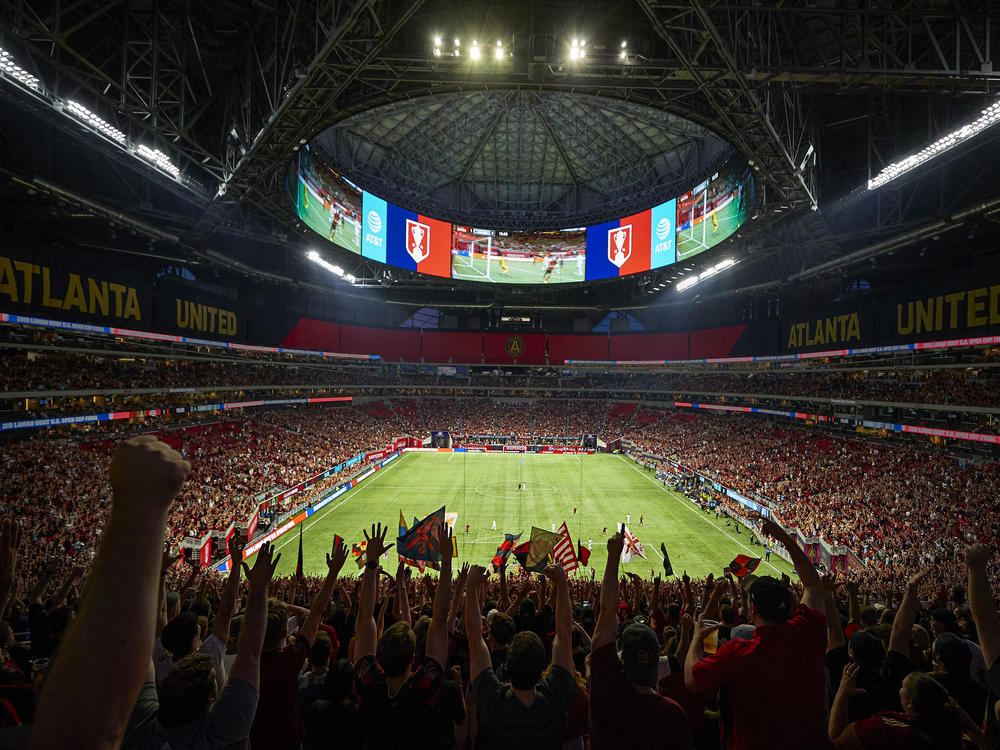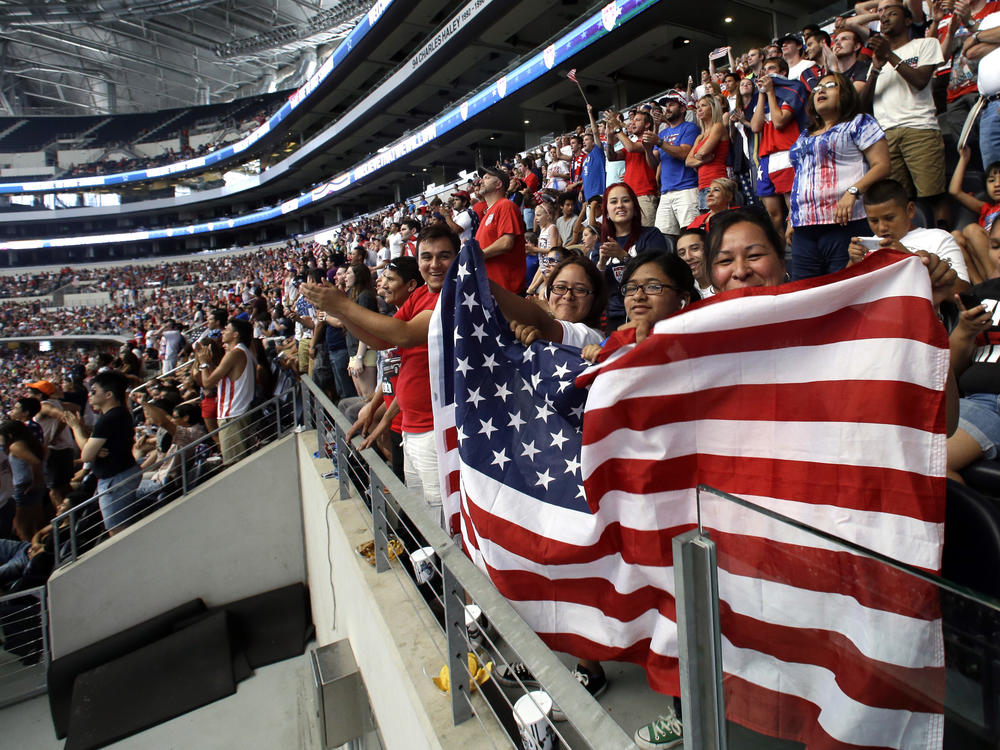Section Branding
Header Content
The U.S. cities hosting the 2026 World Cup will be announced today
Primary Content
Four summers from now, 48 countries will vie for the 2026 World Cup as the tournament is staged in cities across the United States, Canada and Mexico.
Exactly which cities and stadiums will host those matches will be announced on Thursday by FIFA, soccer's international governing body. A total of 16 stadiums are expected to be selected: ten to twelve in the U.S., with the rest in Canada and Mexico.
This will be the first time that the tournament will include 48 teams, instead of the current 32-team format. This will also be the first time the tournament is staged across three host nations.
The cities in contention to host 2026 World Cup matches are: Atlanta; Boston; Cincinnati; Dallas; Denver; Edmonton, Canada; Guadalajara, Mexico; Houston, Kansas City, Mo.; Los Angeles; Mexico City; Miami; Monterrey, Mexico; Nashville, Tenn.; New York/New Jersey, Orlando, Fla.; Philadelphia; San Francisco; Seattle; Toronto; Vancouver; and Washington, D.C./Baltimore.
Four U.S. cities are considered a lock: Los Angeles, New York/New Jersey, Atlanta and Dallas.
The "main" opening match will likely take place in either Los Angeles or Mexico City – both cities that have previously hosted World Cup finals.
The U.S., Canada and Mexico were selected as the winning bid in 2018, beating out Morocco. The U.S. previously hosted the World Cup in 1994; Mexico hosted the tournament in 1970 and 1986.
The three countries' joint bid branded itself the United Bid, under the motto "Unity. Certainty. Opportunity." Their campaign highlighted the major financial opportunity posed by hosting the games in North America, as well as the ease and certainly of using large-capacity stadiums that are already in use.
The majority of the U.S. arenas in contention regularly host NFL teams, and some are home to MLS squads as well. The Canadian stadiums host the Canadian Football League and MLS, while the proposed arenas in Mexico are home to teams in Mexico's top soccer league, Liga MX.
The bid touted the stadiums' luxury suites and club space — promising that all are "ideally designed to host FIFA leaders and guests, international dignitaries, and the premium ticket buyer."
Staging the World Cup across three very large countries will pose significant travel challenges for teams and the fans who follow them, especially compared to tournaments hosted in a single country with strong rail connections that allow fans to zip from city to city.
The United Bid took this into account by designing regional clusters for teams and groups.
In the course of the tournament's knockout stage, there will be a flow from West to East, and the bid proposed siting the final match at MetLife Stadium in East Rutherford, N.J. The bid also suggested hosting the two semifinals in Atlanta and Dallas.
But long before the world's soccer fans arrive in North America, there's the 2022 World Cup, taking place in host nation Qatar. The tournament begins Nov. 21 and runs through Dec. 18.
Copyright 2022 NPR. To see more, visit https://www.npr.org.


